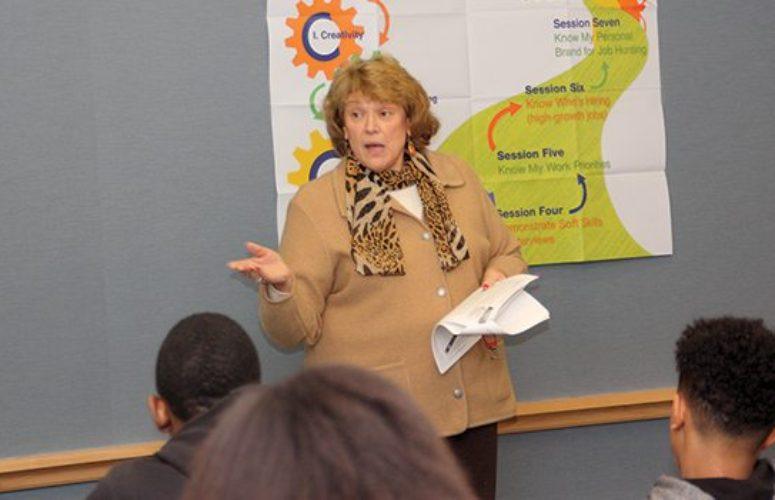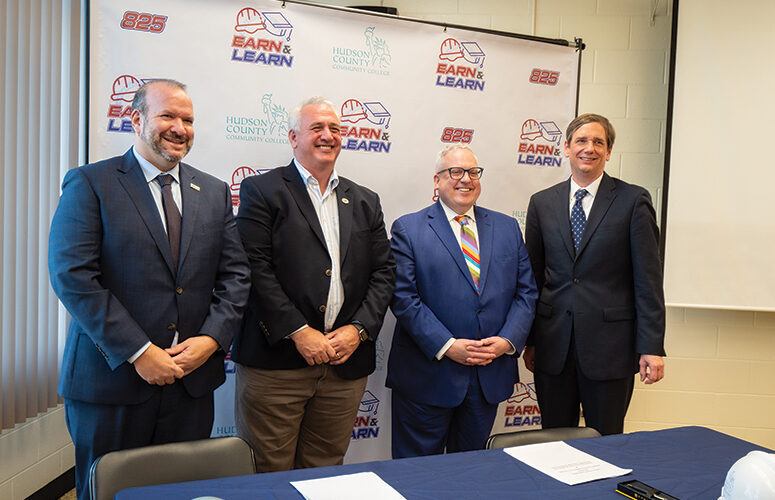
How NJBIA Helps to Strengthen Worker Skills
Training NJ's Workforce
By Melanie Willoughby, NJBIA Chief Government Affairs Officer On Mar 20, 2017The New Jersey Business & Industry Association (NJBIA) has made practical workforce development programs a high priority because we need to make sure jobseekers have the actual skills New Jersey employers require.
We’ve been behind many recent workforce solutions aimed at creating the right training programs matched to employer needs. This includes everything from providing more career pathways for students to obtain the certifications and skills needed for today’s high-tech manufacturing jobs, to requiring that basic career readiness skills – such as teamwork and showing up on time – be taught to children in school.
Pathways to Improve Career and Technical Education
NJBIA formed a statewide coalition with nearly 200 business members called the Employer Coalition for Technical Education. The coalition’s efforts, with the support of the Legislature and Governor, led to the enactment of recent laws that created new career and technical education (CTE) programs, and more partnerships between employers, school districts and colleges to remedy the “skills gap” that has made it difficult for employers to fill positions in the healthcare, IT and advanced manufacturing sectors.
One of these laws created unique training programs in seven county-vocational school districts that will better prepare students for jobs in high-demand industries. Another encouraged all school districts and county colleges to develop dual enrollment agreements that allow students to take college-level courses while still in high school to reduce the time and expense of obtaining a college degree.
The new Applied Technology High School at Bergen County Community College’s Paramus campus, for example, is a four-year program focused on advanced manufacturing and engineering technology. The curriculum is centered on “smart machines” and students in grades 9-12 learn to apply math, science and technology to hands-on projects in automation, electronics and advanced manufacturing. This training, coupled with dual credit enrollment coursework, allows students to earn standing in an associate program, such as general engineering technology – a high-demand field that needs skilled workers to program, install and maintain automated manufacturing systems.
NJBIA also works to connect employers to the state’s CTE high schools, serve as members of advisory committees that shape curriculum, and hire student interns. We provide detailed employer guides on how businesses can partner with K-12 schools, career and technical high schools, community colleges and four-year state colleges and universities.
NJBIA is committed to supporting our state’s $40-billion manufacturing sector, which needs highly trained workers for today’s complex machines. Working with the State County College Consortium and the State Department of Labor and Workforce Development (LWD), we helped launch the Metal Fabrication and CNC Training Program, which uses 400-square-foot mobile manufacturing labs to train workers to use computers that control machines in CNC (computer numerical code) manufacturing metal fabrication and mechatronics. The program has a nearly 90 percent job placement rate.
Teaching Employability Skills
In order to strengthen our workforce pipeline and keep jobs here in New Jersey, we must make sure our students and adult jobseekers are ready for the world of work. Hiring and firing decisions often hinge on how a worker acts. Does he or she work well with a team? Show up on time for work and have a professional demeanor? One of the biggest complaints we hear is that too many applicants, regardless of whether they are high school or college graduates, lack these so-called “soft skills.”
A few years ago, NJBIA and the State Employment and Training Commission teamed up to create the Employability Skills Task Force and its call for action produced results. The LWD now requires employability skills to be part of all job-training programs. And the state Department of Education is incorporating career readiness skills into K-12 curriculum to ensure our future workforce can communicate effectively, problem-solve, work in teams, be creative and innovative, conduct research and apply academic and technical skills effectively in order to advance in careers and achieve financial independence.
NJBIA, the County College Consortium and the LWD also continue to improve the employability skills of existing workers through the NJBIA Basic Skills Training Program. Since its inception 10 years ago, the Basic Skills Training Program has helped 7,221 businesses improve the skills of 108,520 employees in need of language, math and computer training. NJBIA’s outreach to its 20,000 member companies, whose employees could benefit from this training, has helped make this program successful.
Strengthening the Workforce Pipeline
As the industry representative for the National Governor’s Association Talent Policy Academy, NJBIA worked to encourage practical post-secondary education opportunities, including industry-recognized credentials and associate degrees that can be used as stackable credentials on a career path, or as a foundation for further education.
We also advocate for more public-private partnerships in experiential learning. Internships are important at high school and college levels. Student interns experience different jobs in their field of study to determine the best fit for them and develop the contacts they need after graduation. Businesses also benefit from having a direct talent pipeline to potential full-time employees.
Related Articles:






